Police Crime Sentencing and Courts bill: crackdown on UK dissent
The controversial Police Crime Sentencing and Courts bill grants the police special powers to quash any protests at their discretion. Many believe the bill violates civil liberties and human rights.
Known as the Police Crime Sentencing and Courts bill, the controversial legislation gives more power to the police to shut down demonstrations and protesters could even face prison, which could make peaceful protests and marches a thing of the past.
Why did the UK Home Secretary, Priti Patel, suggest such a bill in the first place?
Does it represent a massive assault on civil liberties and a violation of human rights?
Soon, holding a banner, beating a drum and raising your voice in protest may well be illegal in the UK. The government's controversial Police Crime Sentencing and Courts bill is currently being debated at the House of Lords.
If passed, any non violent public assembly could be snuffed out. There is a sense of impending doom. People here fear an Orwellian scenario in which democracy as they know it, although flawed, will become a thing of the past.
The new police powers would set conditions on the duration of protests, noise levels and locations. The British feel the walls are closing in on them; manifesting in more than just this bill.
We've got the worst poverty in Europe with most of us aren't equal country in Europe, and we have the highest death rates from COVID in Europe as a result, it's absolutely appalling.
Kill The Bill Protestor
These are the citizens of the UK saying; we want to, we demand, that we live in a free country. We are all here to defend ourselves, our rights, and journalists and publishers, like Julian Assange, who speak up and tell us what our governments are doing.
Kill the Bill Protestor
The bill also proposes to introduce new laws that penalize stopping on private and public land without authorization. This would have the effect of criminalizing the way of life of Gypsy, Roma, and traveler people.
Our right to protester and the traveler people's right to live where they've lived in their way of living since time immemorial. We are seeing more stringent rules, more brutal rules being brought in stronger police powers, not just here, but around the world. We're seeing the Zionists upping the ante on the Palestinian people.
Kill The Bill Protestor
All of our struggles are connected. And representing the Arab people and representing the fight against the state and against people's ability to speak against the state is crucial wherever we are.
Kill The Bill Protestor (Palestinian)
The Tory government is fishing in murky waters, taking advantage of distractions like the pandemic to push through draconian laws like the police bill and the borders and nationality bill. But the people out on London streets say they have the government 'sussed out' and won't stand for it.
The Police Crime Sentencing Courts bill is a huge piece of legislation covering many aspects of the UK criminal justice system; could you clarify what the controversial aspects of it are?
Well, I would say that there's too many to mention this evening. I mean, obviously, in effect, it outlaws protests. We've seen the targeting of minority groups. The legislation that will impact the Gypsy Roma and traveller community, which we need to remember is the most one of the most discriminated communities within the UK, not just in recent years, but actually since mediaeval times.
And I think when we talk about the Gypsy, Roma, and traveler community, it's important to remember them in the context more widely of Europe and how, alongside the Jews, they were the only other people that were identified as a group for extermination.
I think it's really important to remind people that we should think about how this bill will impact them. So there's lots of other things, as per usual, we see very ambiguous language used about the outlawing of people attaching themselves to things and to people? But what does attach mean?
Does it mean just when you observe people locking themselves in as we quite often see at arms factories and arms fairs? Or does it also possibly mean people linking arms?
So I think there's numerous aspects of this bill and a few amendments that I'm not even aware of, as yet, of course, which have been added since before it went into the house of lords. So I think it's deeply concerning legislation and violates our human and civil rights on all levels.
Natalie Strecker, Human Rights Activist and Campaigner
What was the thinking behind this, was it something that they actually looked at to initially target certain segments of British society?
Perhaps, for example, the ones who come out to protest, or the Roma, or other minorities?
The greatest point of contention, however, is the proposed power to ban marches and demonstrations, should they be considered to be seriously disruptive or too noisy.
I think the capitalist system in this country has broken down, it isn't working, and people now increasingly want to express their concerns about the way democracy operates in this country. We have a climate catastrophe on the horizon. People are rightly concerned about that, the government isn't acting swiftly enough to deal with that.
We see racism and bigotry increasing in this country; we've seen the emergence of the Black Lives Matter campaigners. And obviously this is sending a shiver down the spine ... of the establishment because people are flexing their muscles; they are using the democratic right to demonstrate and to put pressure on the government.
And it seems to me that this is an attempt to squash protest and to prevent these inconvenient truths being highlighted on the streets. And this is a very dangerous and slippery slope, it seems to me, when we're talking about potentially jailing people for you know, up to a year because they're protesting and the police don't like the noise or the route that they wish to take on a march, for example, and I think the other opposition, to jail people for 10 years for defacing or damaging memorials, but we saw this last year or the year before like it was where are a slave trader who had been venerated in Bristol had his statue drawn down and thrown into the river.
And obviously people are rightly upset and concerned about the way in which Britain's imperialist past is, is actually promoted and exalted. And it seems to me people have an absolute right to challenge that. And the governments are seeking to prevent this and to clamp down in the most repressive way possible.
I mean, this is reminiscence of a tin-pot dictatorship. Not the country that was supposed to pride itself on democracy.
Chris Williamson, Former British MP
Priti Patel seems to think that this is okay.
What would you say to her when she says that peaceful protest remains a cornerstone of democracy, but argues that there has been a significant change in protest tactics and that protester are exploiting gaps in the law?
I mean, obviously, there's lots of things I would say to Priti Patel, but probably most of them are not appropriate while being interviewed.
I guess what I would say is that we, we just need to look at our history, you know, if I speak as a female, how was it, we gained our rights, just to be able to vote and to be seen as equals within society, was only possible through the tactics that are being used today, though, the women had to take to the streets, take direct action, to be noisy.
The problem is, you know, if we look at the other tactics quite often, you'll have people sit down and sign petitions, but we know that no change really comes without people being noisy. And that's one of our rights.
And, you know, I've spoken about women's suffrage, but also the civil rights movement, you know, the movement to end the slave trade. I think that Priti Patel, quite often they'll talk about, in November near Remembrance Day, the importance of the sacrifices our soldiers, our grandparents made in order to gain our freedoms. They talk about this a lot.
And yet, you know, at this very moment, they're looking at removing those very freedoms that were fought for. So are they really honouring the sacrifices they make when they're looking at bringing such draconian laws? And listening to what Chris said about a tin pot dictatorship, You know, I would say Priti Patel is a tin pot dictator. And I think it's not just authoritarian, it's actually the bad place that we see ourselves slipping into in the UK. It's really good. I would encourage people to look up the warning signs of fascism.
So it is really frightening times just as ordinary human beings who want to take a stance, the things that are important to us. And what I would add is that this isn't even a left right issue, it comes down to whether we believe in basic freedom of speech with the protection of our civil liberties and individual liberties.
Natalie Strecker, Human Rights Activist and Campaigner
Some of the most colourful, vociferous and large scale protests that have taken place in the UK over the years have dealt with the issue of Palestine.
Given the close relationship that this government, especially Priti Patel, has with Israel, to what extent do you think that this could be one of the driving forces, or incentives for the UK to come up with such provisions?
I don't think that was the only factor but I'm sure that certainly was one of them. You're absolutely right. And it is not just Priti Patel, of course, who is very close to the Israeli apartheid regime. I mean, you know, the vast majority of parliamentarians are supporters of the apartheid state of Israel. about half the members of the parliamentary Labour Party, which is supposed to be the party of the stands up for for civil rights and democracy and anti imperialism, and yet, around 50% of the parliamentary Labour Party are members of an organisation called Labour Friends of Israel.
So yes, certainly. And I think now, because in this modern age of smartphones and so on, what we're seeing is citizen journalism taking place and you know, young people who've learned good English in their schools, perhaps, are able to use their smartphones, and then to upload those images onto the internet, which actually is free.
The absolute barbarity of the Israeli regime and the propaganda that we are relentlessly subjected to in this country and have been, ever since Israel was established in 1948, and much of the atrocities that they perpetrated were unknown to the British people. That's no longer the case.
And the bombardment that we saw against Gaza in the spring of last year, people were coming onto the streets in this country in unprecedented numbers, and not just in the capital either, up and down the country, you know, small towns and large cities in the provinces.
So people coming down to the street In my own city of Derby, which is a modest sized city, it saw the biggest demonstration in Derby's history in support of the Palestinian people.
Now, of course, this is something which, you know, the government seems to me are not prepared to tolerate. And I'm sure that this will be used if these measures are successfully put onto the statute book to limit the ability of people to, you know, highlight the atrocities of the Israeli regime and to support the Palestinian people. But of course, it goes much wider than that.
And you know, we've seen the insulate Britain activists in in this country who have been drawing attention to the scandal of fuel poverty. with Millions of people struggling to heat their homes, desperate choices, eating adequately or heating their homes adequately and there's all sorts of health conditions, thousands of people die every single year in this country in the fifth biggest economy in the world because they can't afford to heat their homes properly, let alone the impact climate change is having on the way of life of people if indeed nothing is done to actually you know, address that. So, they are taking direct action methods which Nattalie talked about the role of the suffragettes and the direct action that they engaged in.
Direct action has an absolutely important role to play in a democracy. And it's through direct action, actually, that many of the advances that we made in this country, in terms of democratic rights for the citizens of Britain, has been brought about in the first instance as a consequence of direct action and this is really an attempt to try and you know, stifle it and prevent it but I'm sure that it won't succeed and you know, it will make people more determined, but what we will see is our prisons filling up. That is an issue there because all of our prisons have been privatised so there's money to be made out of imprisoning people in this country. It is an absolute scandal.
The system is completely broken in this country. People are waking up to that. And regrettably, with establishment parties on both sides of the chamber in Parliament who were not really speaking up for the people, so people are taking to the streets to actually make their voices heard. As I say this is an attempt to stop them having their voices heard and the pressure being exerted.
Chris Williamson, Former British MP
Chris Williamson said that this is not going to stop people from coming out.
We could talk about what may occur as protests take place, and the police make decisions as to whether these protests are following any guide lines or not.
But lets take a look at the bigger picture in the UK when it comes to freedom, when it comes to the whole notion of democracy, because you explained how this is becoming a fascist state, perhaps an authoritarian dictatorship.
The UK has, by some accounts, been described as being a police state. Maybe that also leads to the line that you were considering when speaking about freedom being chipped away at, which is a big blow to freedom in the UK.
What are the consequences that we're going to see as a result of this?
Well, obviously, it's going to impact every area of our life, you know, because if it's I mean, a lot of this is about whether the police agree for you having a protest or the government.
If the government agrees with it then it's not really a protest, is it? It's a parade. And I think it's important to kind of remember that but you know, Chris, quite rightly said before about the different things that, you know, society is unraveling, as we see the collapsing of capitalism, the Neo liberal project, as we see ecological breakdown, you know, escalating.
This is going to cause more and more unrest, in terms of freedoms, If people don't have the right to go out on the streets, then it's going to impact other freedoms, the freedom and the right to life, you know, the right to security and all these other things.
I think it's deeply concerning, but also how it will impact education that takes place, you know, the sense of, you know, the personal agency that we have as individuals. I think there are so many ways that this will impact us.
And of course, we're focusing on a policing bill, but there are other bills that have been brought in already which signal that we are now living in a police state. So if you look at the covert human intelligence sources bill, which in effect means that the police and The intelligence agencies are able to commit any crime against, you know, private citizens, without exception ... in the past this used to be you know, for the ambiguous term national security. This can also be used in terms of protecting the UK economy; what does that mean?
Does it mean a trade unionist trying to organise a general strike or to protect, you know, to prevent public disorder, what does that mean? Does it mean, you know, torturing or even killing, you know, somebody who's looking to raise a subject matter that impacts them?
So I think that it's hollowing out our civil liberties, and it's going to impact our freedoms. And in fact, there's probably things that we haven't even anticipated at this moment in time. And one thing I perhaps didn't mention when we're talking about the different aspects of the law is that if somebody has been to protests that have been approved or been, you know, two protests I think it is in the last five years. this bill will prevent them from, not only being able to attend protests, but also being able to encourage people on social media or our friends to attend protests. It's deeply concerning.
Natalie Strecker, Human Rights Activist and Campaigner
Of course, because they don't want you to spread the word or try to gather people, whether it's through social media or other means. You mentioned other legislation that's being debated. And I have to ask you about this one, because this has raised eyebrows, and shocked many, the nationality and borders bill, which among other provisions, would allow the government to strip people of their British citizenship, without prior notice; another law which is very controversial.
Very controversial, and you would think, given the scandal of what happened to the Windrush generation where we saw people, children who'd lived here, all their lives virtually, but didn't have papers and weren't able to necessarily prove that they got British citizenship were being deported back to the Caribbean. Absolutely outrageous!
And this caused huge controversy when it eventually came to light a few years ago now. And yet, here we are, with this new legislation, which is being brought through, which is kind of a repetition, and actually, even worse than, potentially, what happened to the Windrush generation.
And people are right to be fearful about the implication of this. But you know, as well, I mean, you know, as you mentioned it can't hurt to refer back to the points about the Covert Human Intelligence Sources bill, because that actually, and there was an attempt by the opposition in the House of Commons to exclude it because it gives agents of the state the right to commit criminal conduct, and there was an attempt in the House of Commons to limit that criminal conduct, to prevent it from being used to rape, torture or murder people, that could not be done under the basis of this Criminal Human Intelligence Sources, legislation, and that was voted down.
So it seems to me the government is essentially, therefore, giving the green light to murder, rape and torture people. I mean, this is unbelievable, what is happening is outrageous.
And so yes, I mean, you know, the, the repressive legislation, which is being pushed through, which isn't being resisted sufficiently vigorously enough, by the official opposition in the House of Commons or indeed being reported upon by the corporate or state media ... they're doing an incredible disservice to the people of this nation.
And that's why public protest is so important to actually raise these issues, because we are being ill served by the media, and by our parliamentarians, who should be there to actually hold the executives or hold the government to account to stop these repressive measures being pushed.
Britain used to pride itself on its democratic traditions, on spreading democracy around the world. And yet, here we are, in a situation where more and more repressive legislation is being pushed through almost on a monthly basis, now. It’s quite shocking. And it's really important that we do everything we can, I think to mobilize opposition to it.
Chris Williamson, Former British MP
VIDEO | Yemen; a bone in Israeli neck
D-8’s role in Iran’s economy after Cairo summit
China slams US as ‘war-addicted’ threat to global security
China ‘firmly opposes’ US military aid to Taiwan
VIDEO | Press TV's News Headlines
President Yoon Suk Yeol to be removed from office
At least 19 Gazans killed by Israeli airstrikes since dawn: Medics
Leader: Iran neither has nor needs proxy forces


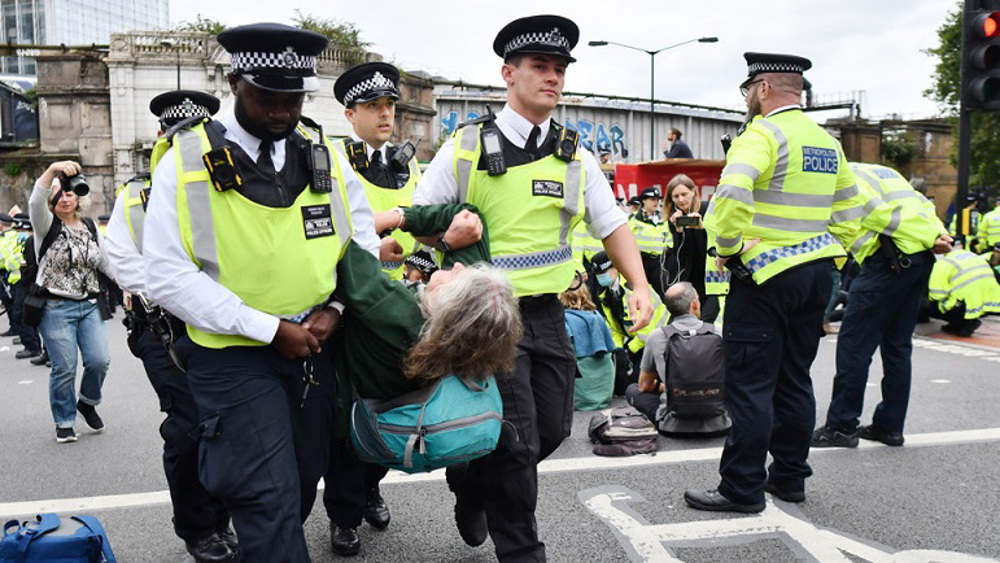
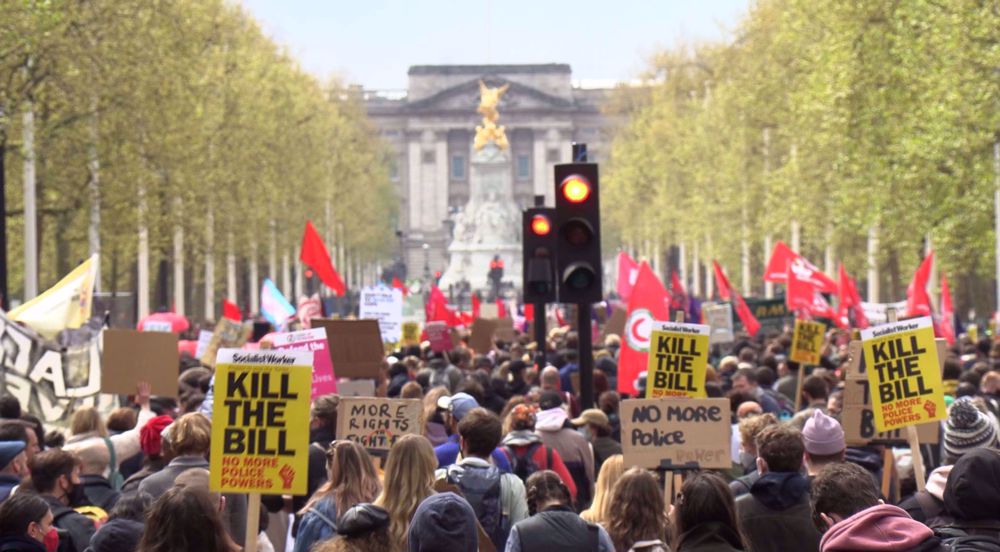
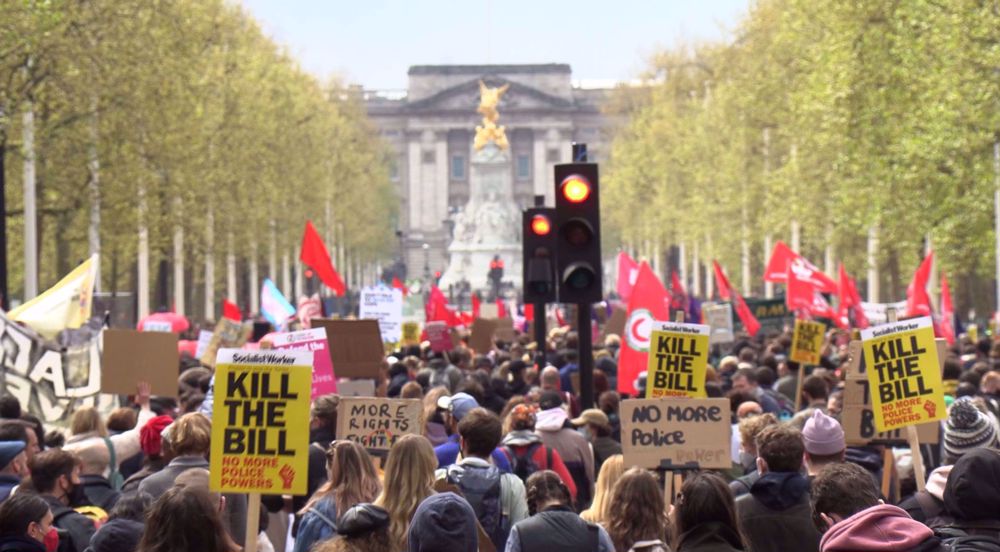
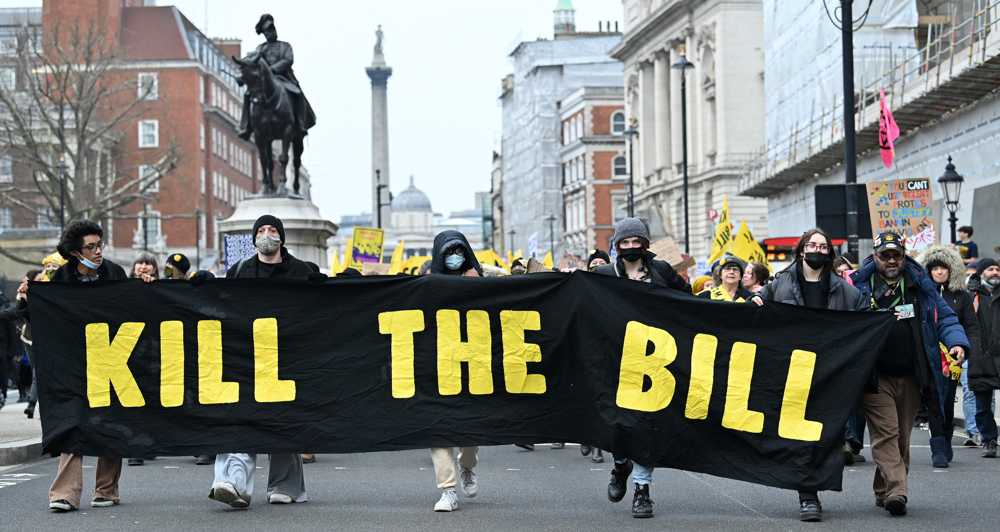
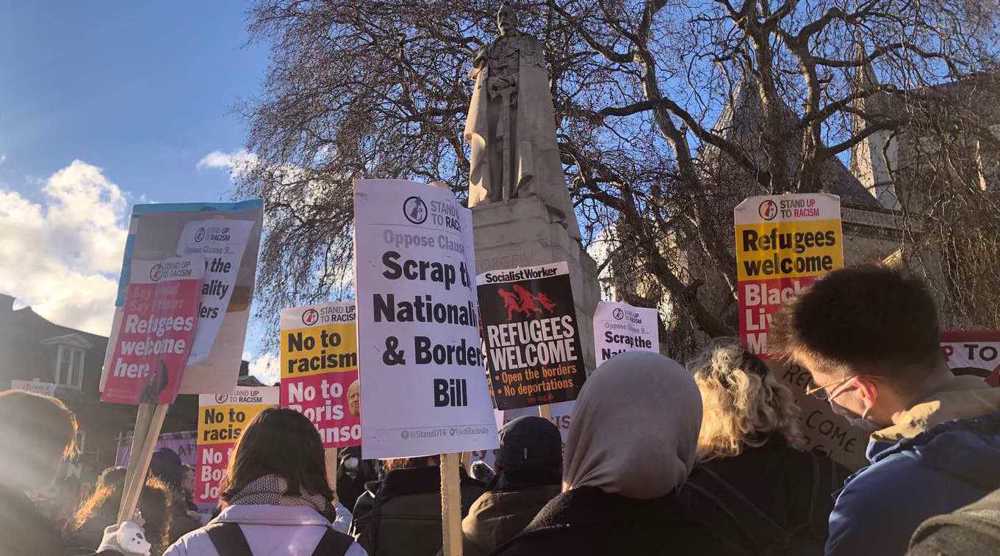
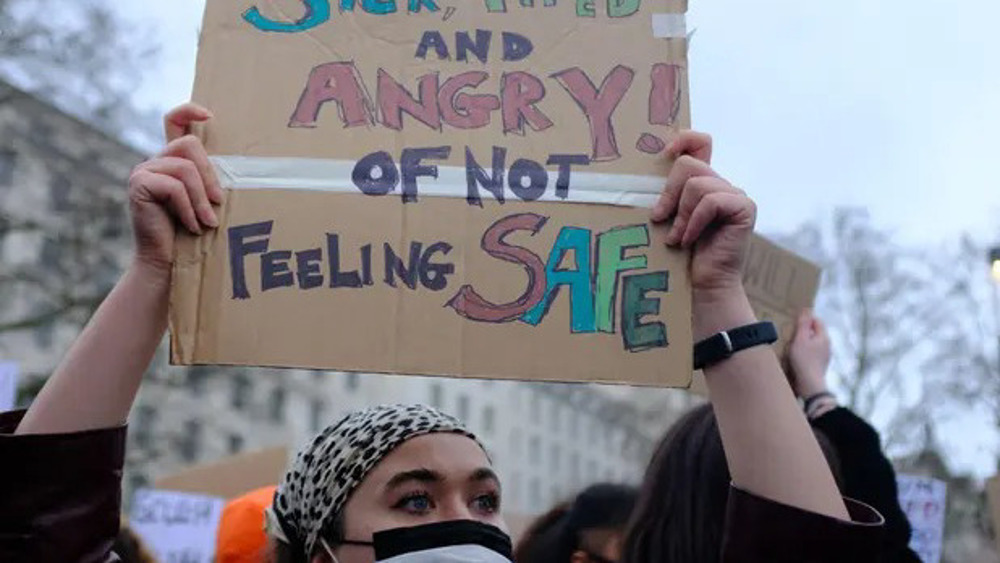
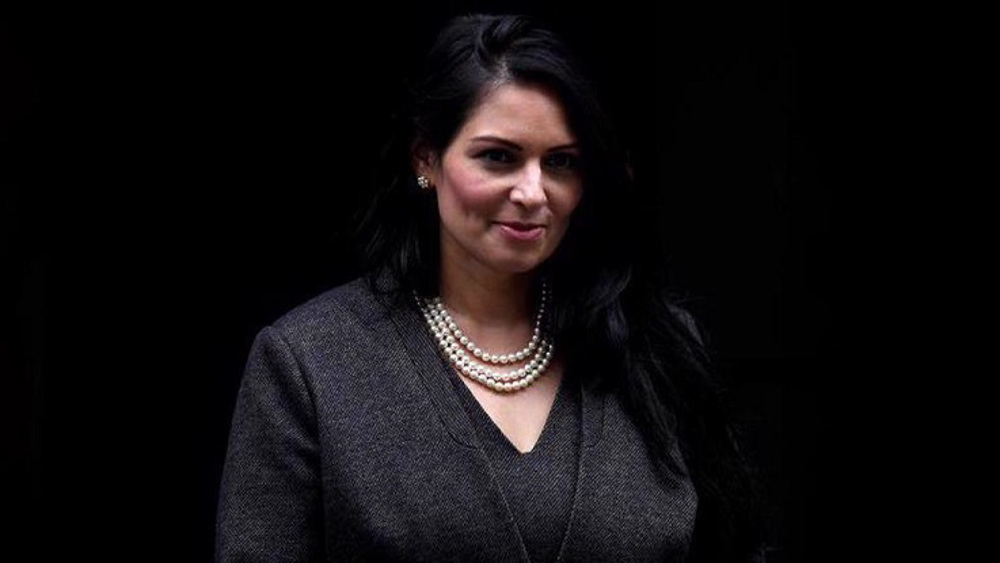
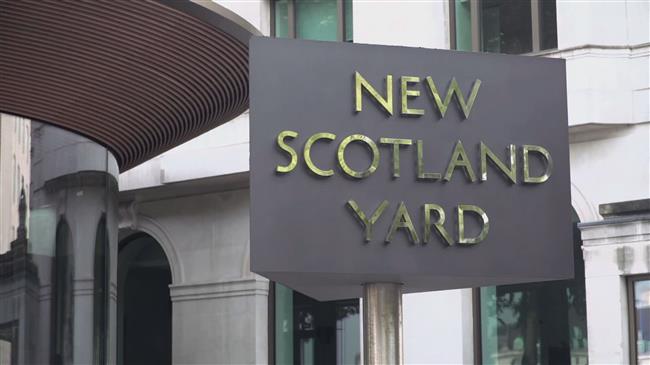
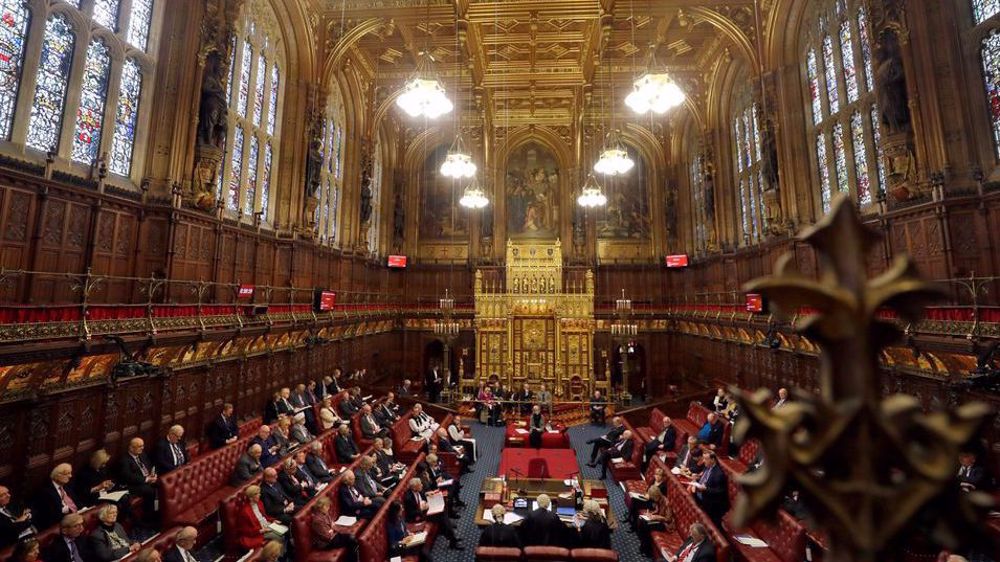
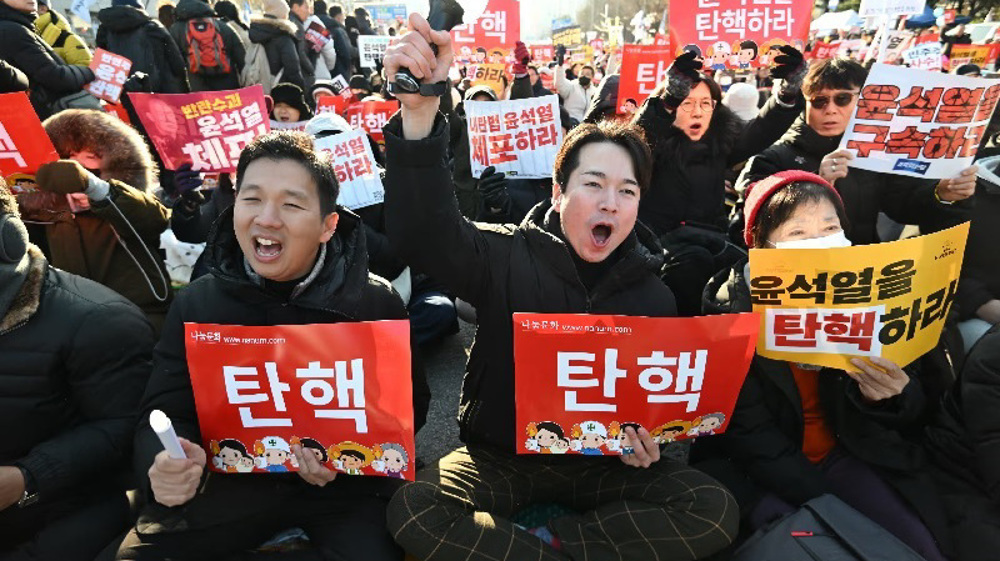

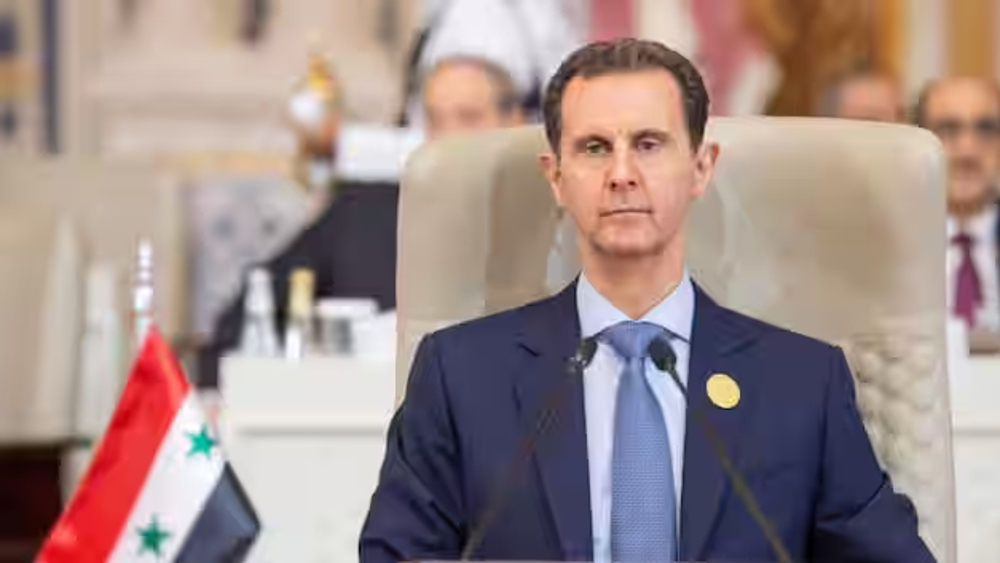



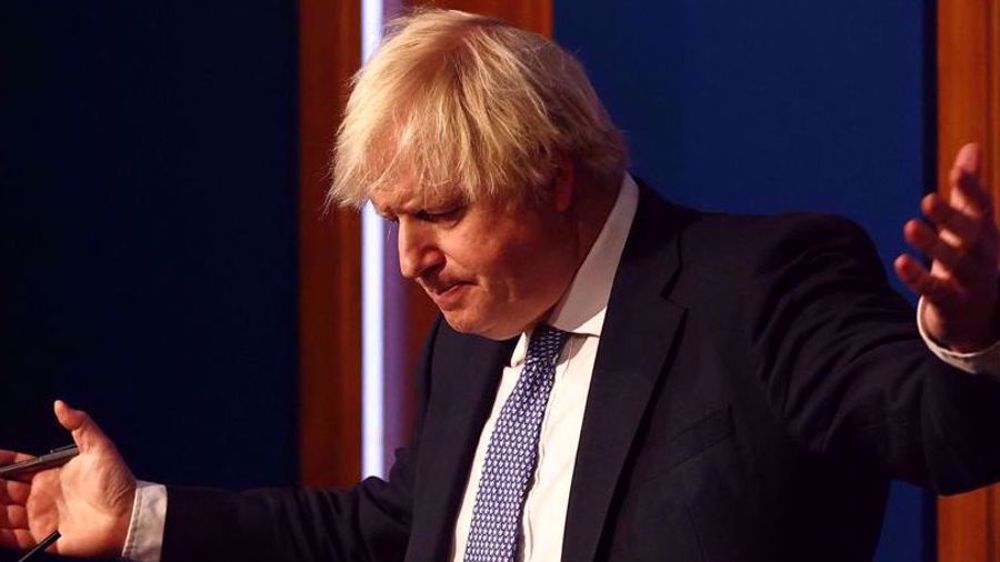
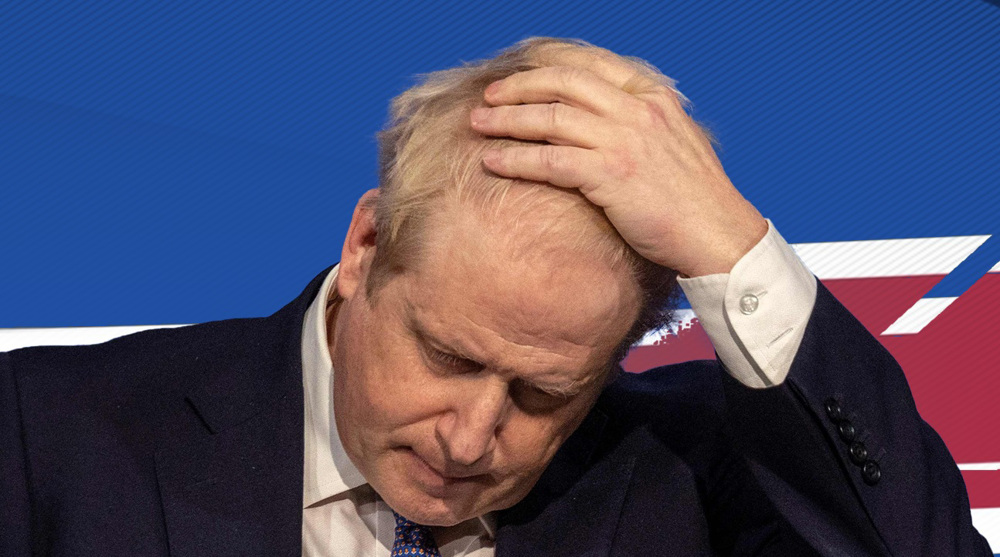

 This makes it easy to access the Press TV website
This makes it easy to access the Press TV website